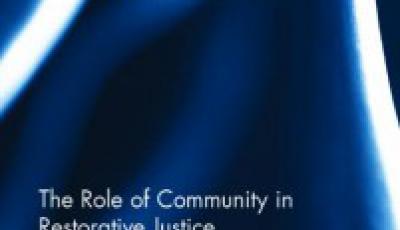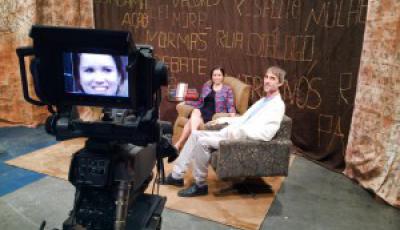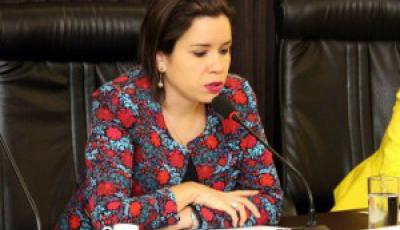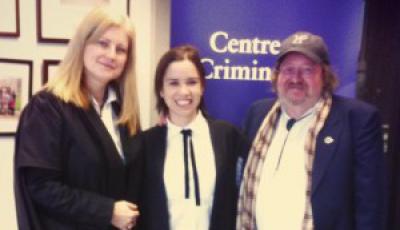DPhil Alumna Fernanda Fonseca Rosenblatt’s New Book Published by Routledge
Posted:
Time to read:
Post by Fernanda Fonseca Rosenblatt, Assistant Professor at the Catholic University of Pernambuco, Brazil. Follow Fernanda on Twitter @ffrosenblatt.

Drawing on an empirical case study and the wider sociological literature, The Role of Community in Restorative Justice examines the involvement of the community in one selected practice of restorative justice―namely, youth offender panels in England and Wales―and also considers the implications of the English and Welsh experience for development of a more coherent framework for operationalizing community involvement in restorative justice practices. I argued that restorative justice programmes need to start from a more concrete and up-to-date notion of community. While operationalizing community involvement, they need to acknowledge, all at once: the importance of place; the importance of family links, friendship and other social ties; and the importance of similar social traits and identities.
With a foreword by Professor Hoyle, the book has received positive reviews from leading academics and practitioners in the field:
‘Focusing on Great Britain, Rosenblatt offers the first empirical results on this subject, making it a must-read for anybody who is interested in the relationship between Restorative Justice and Communities. It should be on the bookshelf of any serious scholar in this area. The future lies in works like this.’ – Elmar G.M. Weitekamp, Professor of Criminology, University of Tübingen, Germany
‘In The Role of Community in Restorative Justice, Rosenblatt confronts the mythology of government programs that claim to be “restorative” by exploring the concept of community more closely and examining how it is employed. She provides an excellent assessment and critique of how youth justice panels in the United Kingdom fall far short of meaningful community involvement. Her work will inspire others to scrutinize the implementation of restorative justice initiatives to ensure fidelity to its fundamental premises.’ – Ted Wachtel, President, IIRP Graduate School, USA
‘This book represents an important contribution to restorative justice scholarship by providing theoretically-informed and empirically-rich insights into the role of community in restorative practices. Rosenblatt gives us a nuanced and balance appraisal of the restorative pretentions of youth offender panels in theory and in practice, as well as the benefits and challenges of engaging community members in such processes. The book will be of considerable interest and value to all those―academics, policymakers and practitioners, both in the UK and beyond―who are seeking to advance community involvement in dispute resolution and justice systems more generally.’ – Adam Crawford, Professor of Criminology and Criminal Justice, University of Leeds, UK
More details about the book can be found on Routledge’s website. The book is also available on Amazon.

I’m now in Brazil, where I work as an Assistant Professor at the Catholic University of Pernambuco, and where I’ve been teaching Criminal Law and Criminal Procedure, as well as supervising several undergraduate dissertations related to criminal justice and criminology. Since returning to Brazil, I’ve published a number of articles and book chapters on issues related to restorative and youth justice, both in Brazil (in Portuguese) and abroad (in English) (see, for example, my work in Restorative Justice, Sistema Penal & Violência, and Revista Brasileira de Sociologia do Direito). I’m currently working on several projects, including: a chapter about restorative justice and rehabilitation for a book edited by Dr Theo Gavrielides and published by Nova Science Publishers (New York); a co-authored editorial for Restorative Justice: An International Journal, with Daniela Bolívar (from Chile), about restorative justice in Latin America; and a co-authored article with Professor Hoyle for a special issue of Victims & Offenders: An International Journal of Evidence-based Research, Policy, and Practice focused on restorative justice. I’ve also been invited to speak at several national and international academic events.

I’m now a member of the editorial board of the Brazilian Journal of Sociology of Law, as well as a member of the Asa Branca Research Group of Criminology, which has been conducting a series of empirical studies in Brazil dealing with youth justice; domestic violence and gender-related violence; drugs and policing in Brazil; and restorative justice. The Asa Branca Group is about to embark on a research investigation of the use of restorative justice for domestic violence in Brazil, with which I’m actively involved. Upon my return to Brazil, I was appointed by the Brazilian Bar Association (Ordem dos Advogados do Brasil) as a member of its commission on legal education, which has been set up to evaluate the legal education standards of over 30 law faculties in the state of Pernambuco, Brazil. I’ve also been a co-opted member of the Executive Committee of the World Society of Victimology since 2012.

Studying for the DPhil in Criminology at Oxford was an excellent preparation for the rigours of academic life. I will never forget my experience at the Centre for Criminology or the wonderful people I met while studying there.
Share:
